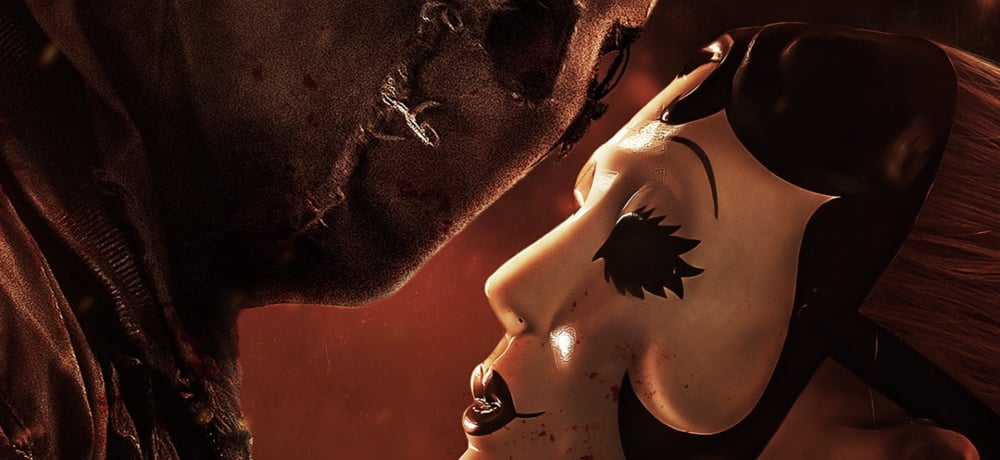






I’m not sure if you heard, but there was a minor announcement made recently that Jamie Lee Curtis will be reprising her role as Laurie Strode in Blumhouse’s upcoming installment to the Halloween franchise. While the majority of the response has been positive, there have been some concerns, such as the need to once again retcon the series to resurrect Laurie Strode as well as the usual skepticism about the need for another Halloween movie. While I understand these concerns, I do have a retort: they’re bringing back Jamie Lee freaking Curtis.
This woman is the highlight of anything she’s in, be it one of her many turns in horror flicks, starring roles in big-budget action movies like True Lies, or even just a guest spot on New Girl. I’d slap down ten bucks to watch this woman fold laundry. And I have to say, I have a certain amount of respect for the fact that she doesn’t try to push a phony image as someone who’s in love with the horror genre. She’s made no secret that at least some of her work in horror is due to happenstance, returning favors, or just needing the work. But she’s also never been disrespectful of the genre, and she does keep coming back.
Her peak horror years were the early 1980s, when she starred in a string of slashers including The Fog, Prom Night, Terror Train, and of course, Halloween II. Somewhere in that busy schedule, though, Curtis found the time to sneak down to Australia to film a movie I’d literally never heard of until last month when I saw it was streaming on Shudder: the 1981 thriller Road Games. Directed by Richard Franklin (making his second consecutive appearance in this column after last month’s Psycho II) and starring Stacey Keach in addition to Curtis, I was promptly sold on a trip to the Outback.
Now, usually I try to provide my own synopses for the movies I cover (which I hate doing and am terrible at) but this go-around I’m going to cite Shudder’s pitch, as it plays pretty heavily into how I viewed the movie:
Wisecracking trucker Quid (Stacey Keach) is hauling meat across Australia when he becomes suspicious that a creepy driver is the same serial killer who’s been butchering women in the area. While tailing the psycho, he picks up hitchhiker Jamie Lee Curtis, who eagerly joins him in his pursuit of justice. But this clever killer has taken steps to make sure police suspicion falls on Quid instead! Director Richard Franklin (PSYCHO 2) used Alfred Hitchcock as inspiration for his ultra-tense horror thriller. Fans of highway horror hits like DUEL and THE HITCHER are in for a wild ride.
When you toss around phrases like “butchering women” while comparing a movie to The Hitcher, I’m expecting a pretty dark trip. The Hitcher is one of those flicks that has you gripping your armrest the entire runtime, just waiting for the next horrible thing to happen. Road Games, on the other hand, takes a much different approach. I’m not going to even try to make the case that this movie, which hints at serial murder, dismemberment, and even a touch of cannibalism, isn’t horror. Lord knows we’ve gotten too much of that as of late (next person to claim IT isn’t a horror movie is getting kicked right in the red balloons). But what separates this movie from something like The Hitcher is that it takes on a much more playful tone.
Think of Road Games less as a tension-riddled thriller and more as a full-length version of one of the goofier episodes of Tales from the Crypt, a tone that’s set quite literally by the score. Brian May (no, not that one) is an Austrailian composer who pops up in some pretty random genre credits, from the first two Mad Max installments to Freddy’s Dead: The Final Nightmare. For Road Games, however, May sidestepped the ominous, ambient tracks one might expect and gave us something that would seem more at home in The Adventures of Milo and Otis. It’s peppy, kinda cheesy, but damned if it’s not catchy as hell.
What I didn’t know until after I saw the movie was that there is a method to Franklin’s madness. When he worked with writer Everett De Roche on how he wanted to develop the script, he used Rear Window as the example of the type of movie he was going for, which put a whole new perspective on the final product for me. Rear Window, while suspenseful, has a similar touch of levity. And just like Rear Window, we get a protagonist who is largely isolated from the outside world. But instead of being stuck in an apartment, our hero is confined primarily to the cab of his truck, giving the movie an interesting balance between sweeping road epic and self-contained, almost claustrophobic delirium.
And just like Hitchcock’s thriller, the movie really lives or dies based on whether or not we’re willing to take the ride with the main character. With this being the case, you could do a hell of a lot worse than Stacey Keach’s Quid, a smart-ass but charming American who spends as much time talking to his dingo as he does talking to other characters. But Keach makes what amounts to extended monologues work, dropping subtle hints that make us question whether this madman he’s following is real or just the wild speculation of a guy who’s spent too much time on the road.
Of course, there’s only so much one can take of watching a person talk to himself. Enter Jamie Lee Curtis’ Pamela, a hitchhiker Quid picks up about halfway through the movie. Now, I know what you’re thinking: didn’t Curtis already do the “young girl hitchhiking with a middle-aged man” schtick in The Fog? Yes, she absolutely did. But we get a bit of a different dynamic here, with Curtis playing things a bit more ambiguous and adding a nice wrinkle that only further bothers Quid’s already troubled mind. Is Pamela the mystery man’s next victim? Is she in cahoots with him? We’re left to wonder about that right until the final frames of the movie. And of course, since this is Jamie Lee Curtis, I damned sure wanted to know.
The best advice I can give you about Road Games is to leave your expectations at the door. Don’t make the same mistake I did, because if you go in looking for something akin to an edge-of-your-seat thriller, you’ll probably be disappointed. This is a movie that, similar to its hero, meanders a bit in reaching its destination. You may wonder at times if you’ve taken a wrong turn, but once you get to where you’re going, I think you’ll be happy you took the drive.